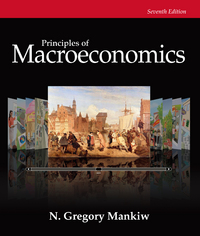Question
Please reply to the below post: This is an excellent post with an outstanding checklist. Thank you for your time and effort this week. Can
Please reply to the below post:
This is an excellent post with an outstanding checklist. Thank you for your time and effort this week.
Can you believe Bitcoin? I mean really...
Here is my contribution to the basics.
Cryptocurrency is digital cash. It is like regular money, dollars, Euros, pounds, etc., but it is digital-only, virtual, so there are no bills or coins, nothing tangible.
The economic value of cryptocurrency, like most goods and services, comes from supply and demand.
Supply refers to how much is available; how many Bitcoin are available to buy at any moment in time.
Demand refers to people's desire to own it: how many people want to buy Bitcoin and how strongly they want it. The value of a cryptocurrency will always be a balance of both these basic economic factors.
Cryptocurrencies and regular money share some traits, how you can use them to buy things or how you can transfer them electronically, but they are also unique. Here are a few highlights.
Cryptocurrency | Other currency | |
|---|---|---|
Who manages it? | A network of computers running open source code | The government that issues it |
How does it hold its value? | Primarily based on supply and demand | Primarily based on confidence in the government that issues it |
How is it secured? | By a network of computers that verify every transaction, anyone with an internet connection can participate | By third parties like banks and governments, only a select few can participate |
Are there physical bills or coins? | No | Yes |
Can I buy things with it? | Yes, but only where merchants accept it | Yes, but typically only in the country that issues it |
Bitcoin is a cryptocurrency introduced on 31 October 2008 with a computer science paper that described how it would work. A few months later, on 3 January 2009, the code was released, and the first bitcoins were made available.
Bitcoin is often compared to gold in that there is a limited supply: the maximum number of bitcoins that will ever enter circulation is 21 million. Unlike gold bitcoin is digital, making it far easier to divide, transfer, and store.
Bitcoin is the oldest and most well-known cryptocurrency, but there are hundreds of others. Some cryptocurrencies, like Litecoin and Bitcoin Cash, share Bitcoin's core characteristics but are new ways to process transactions. Others offer a wide range of features. Ethereum, for example, can be used to run applications and create contracts.
Did you see the "Big Bang Theory" episode on Bitcoin?
Any questions?
Step by Step Solution
There are 3 Steps involved in it
Step: 1

Get Instant Access to Expert-Tailored Solutions
See step-by-step solutions with expert insights and AI powered tools for academic success
Step: 2

Step: 3

Ace Your Homework with AI
Get the answers you need in no time with our AI-driven, step-by-step assistance
Get Started


